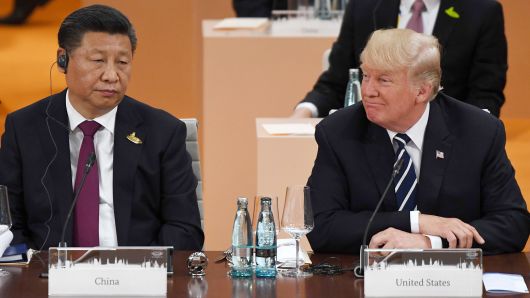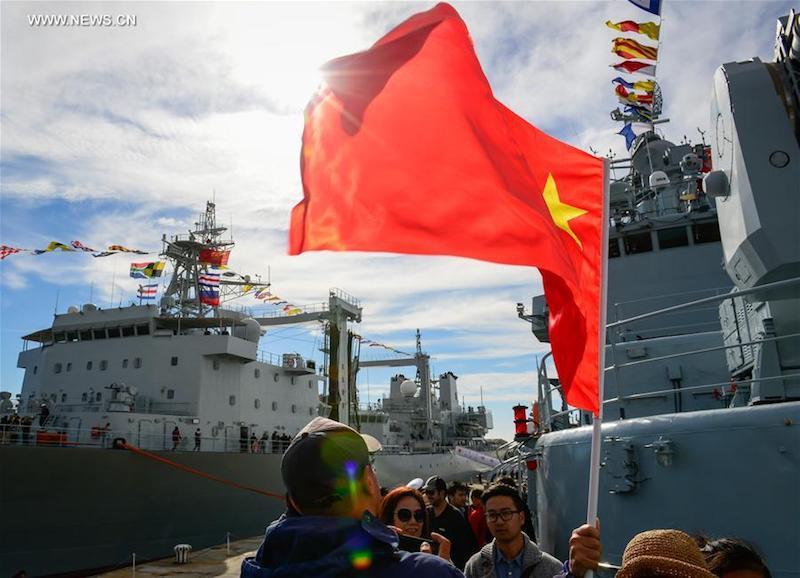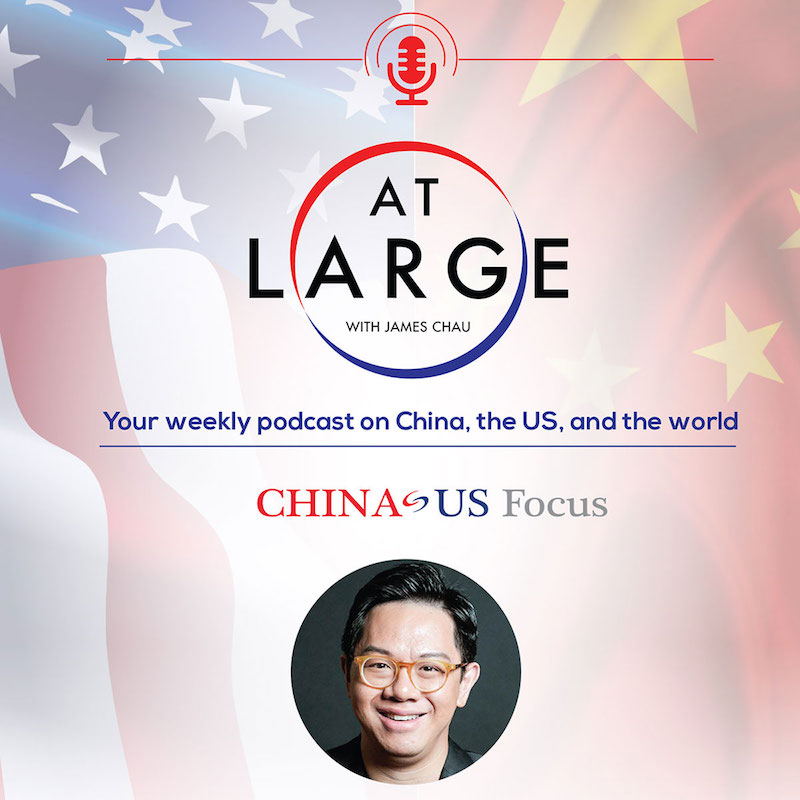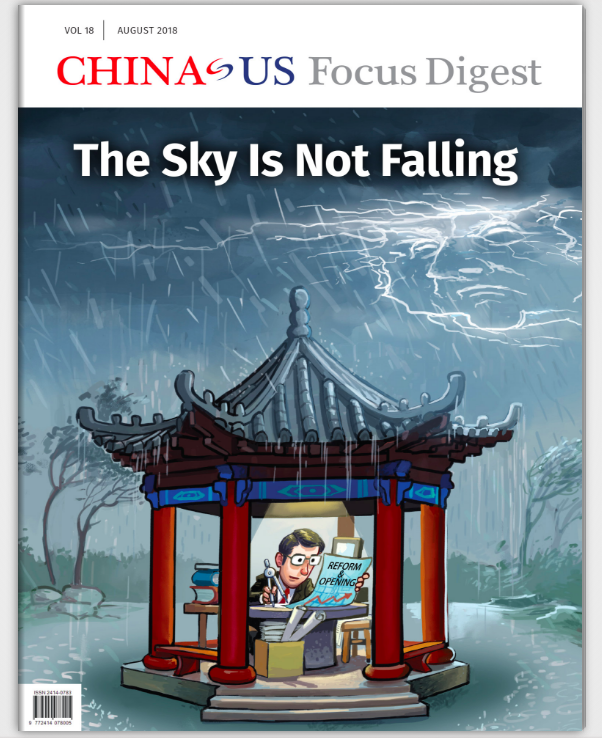
 Trade Talks Back On
Trade Talks Back OnNew trade talks have been announced for China and the U.S. later this month. The talks, which will be the first in over two months, will be led by China's Commerce Vice-Minister Wang Shouwen and Davis Malpass, the U.S. Treasury Department's under secretary for international affairs. According to Bloomberg, Wang Shouwen, leader of the Chinese delegation, is a "veteran trade bureaucrat and fluent English speaker who's called America a 'trade bully.'" The choice of low-level officials to conduct the talks has led to low expectations of success among observers. "Treasury is not in charge of trade, and Malpass is not the right person to be talking to," said Derek Scissors, resident scholar at the American Enterprise Institute, according to the South China Morning Post. In reality, the Office of the United States Trade Representative, led by Robert E. Lighthizer, oversees the lists of Chinese goods facing tariffs.
However, previous high level trade negotiations led by Chinese Vice Premier Liu He and U.S. Treasury Secretary Steven Mnuchin failed to yield a productive agreement due to lack of support from President Trump — frustrating China's leaders and reducing optimism about negotiations that are not endorsed by the president. It is considered politically risky for a senior Chinese official to enter talks that could be unexpectedly vetoed by Trump.
The new round of trade talks, scheduled for August 22 and 23, are considered "exploratory" as the low-level officials will haggle to decide whether higher-level talks should recommence. U.S. demands on the agenda include lowering of tariffs, ending forced technology transfer, improving market access for foreign companies, and raising the value of the yuan to its pre-dispute level. On the other side, China seeks the removal of U.S. tariffs as well as equal treatment of Chinese companies in national security review among others. This comes at a time when the Trump administration is moving forward with plans to impose an additional $200 billion of tariffs on China. China has vowed to retaliate with $60 billion penalties on U.S. goods. Pentagon's Report Speculates China's Military Future
Pentagon's Report Speculates China's Military FutureIn an annual report released late on Thursday, the U.S. Department of Defense analyzed Chinese military capabilities and strategic intentions, estimating the country's defense spending exceeded $190 billion in 2017. The Pentagon report, titled "Military and Security Developments Involving the People's Republic of China 2018," is mandated by Congress and covers "the current and probable future course of military-technological development of the People's Liberation Army and the tenets and probable development of Chinese security strategy and military strategy." In addition to analysis of the improvements in Chinese military capacity, the report highlights opportunities for future engagement and cooperation among the two powerful defense forces.
While the report emphasizes particular flashpoints in this bilateral security relationship, such as Taiwan, it also devotes coverage to China's "Maritime Militia", which it calls a pivotal instrument of Chinese influence in the South China Sea. A civilian reserve force, the ships often protect Chinese maritime claims in the area by supporting operations of the country's Navy and Coast Guard. The report classifies this group and its efforts as part of China's "grey operations," which do not openly agitate other parties in the South China Sea, but nevertheless secure Chinese interests.
Despite speculation among international observers that the report was released to increase tension between China and the U.S., it insists that the U.S. "seeks a constructive and results-oriented relationship with China," an important sentiment as the two nations head into revamped trade talks. As China-US Focus contributor Cui Liru argues, "Neither China nor the U.S. can change the course of this historical process alone. . .[China and the U.S.] will also enjoy limited cooperation on issues with shared interests, which is why security cooperation in the Asia-Pacific is still useful."
For more insight on Chinese military capabilities, view our recent video, "Is China's Navy A Threat?" China-US Focus Debuts New Podcast Series, "At Large"
China-US Focus Debuts New Podcast Series, "At Large"China-US Focus brings you a new, weekly global affairs podcast presented by James Chau. A news anchor who has interviewed many of the world's leading personalities, he explores the bilateral developments that are shaping the China-U.S. relationship. Covering pivotal events in the ever-evolving economic, security, and diplomatic relationship between the two countries, James will engage Chinese and American influencers in a variety of sectors in exclusive interviews for "At Large." With robust analysis and keen personal insight, "At Large" is the perfect addition to a China watchers' week.
Subscribe to 'At Large Podcast' on Spotify, SoundCloud, Google Play Music and Stitcher or listen via our website. New China-US Focus Digest Available Online
New China-US Focus Digest Available OnlineThe latest edition of China-US Focus' journal "Focus Digest" is now available in a digital edition on our website.
Coming after an eventful few months for China-U.S. relations, in this new edition, our contributors weigh in on the myriad potential impacts of the China-U.S. trade war. In their commentaries, they analyse which economy is likely to be more resistant to a protracted trade war, discuss why it is politically difficult for China and the U.S. to cut a deal on trade, and predict the future health of the Chinese economy. The Digest features commentaries by renowned Chinese economist Lawrence Lau, the director of Brookings' John L. Thornton China Center, Cheng Li, and academics, policymakers and journalists from the U.S. and China.
In the Editor's Note, China-US Focus Editor Zhang Ping writes: "With no immediate solution in view in the ongoing trade dispute between China and the U.S., we need to keep sight of the bigger picture. . .Faced with this growing suspicion and unease, we can probably learn a thing or two from President Ronald Reagan's speech in Shanghai 34 years ago. Speaking to an enthusiastic crowd at Fudan University, filled with many of China's brightest students, Reagan said:
"We must neither ignore our problems nor overstate them. We must never exaggerate our difficulties or send alarms for small reasons. We must remember that it is a delicate thing to oppose the wishes of a friend, and when we're forced to do so, we must be understanding with each other."
This is an important and meaningful reminder for us all."
The digital magazine can be accessed here in English and Chinese.
Prepared by China-US Focus editorial teams in Hong Kong and New York, this weekly newsletter offers you snap shots of latest trends and developments emerging from China every week, while adding a dose of historical perspective.
- 2018-08-10 American Natural Gas Industry Braces for New Chinese Tariffs
- 2018-08-03 Tentative Signs of U.S.-China Cooperation at the ASEAN Summit
- 2018-07-27 President Trump’s Trade War Bailout
- 2018-07-20 Xi Charms the World
- 2018-07-13 China Defends WTO Record in the Face of Additional U.S. Tariffs
- 2018-07-06 The Trade War Begins
- 2018-06-29 President Trump Chooses Slightly Softer Option on Chinese Investment
- 2018-06-22 Trade Tensions Spark Stock Sell-Off in China
- 2018-06-14 How “Comprehensive” Is the Kim-Trump Agreement?
- 2018-06-08 China Awards Putin First Medal of Friendship
- 2018-06-01 USPACOM Rebranded As U.S. Indo-Pacific Command
- 2018-05-25 Trump Cancels North Korea Meeting
- 2018-05-18 The On/Off Trump-Kim Summit
- 2018-05-11 American Goods Are Stuck at Chinese Ports
- 2018-05-04 China and the U.S. Lay Trade Demands on the Table
- 2018-04-27 U.S. Delegation Will Visit China Next Week
- 2018-04-20 China and the U.S. Seek Allies in Trade Dispute
- 2018-04-13 President Xi Reviews the PLA Navy
- 2018-04-06 China and Russia Pledge Military Cooperation in a Signal to the United States
- 2018-03-30 Kim Jong Un Visits Beijing on First Overseas Visit